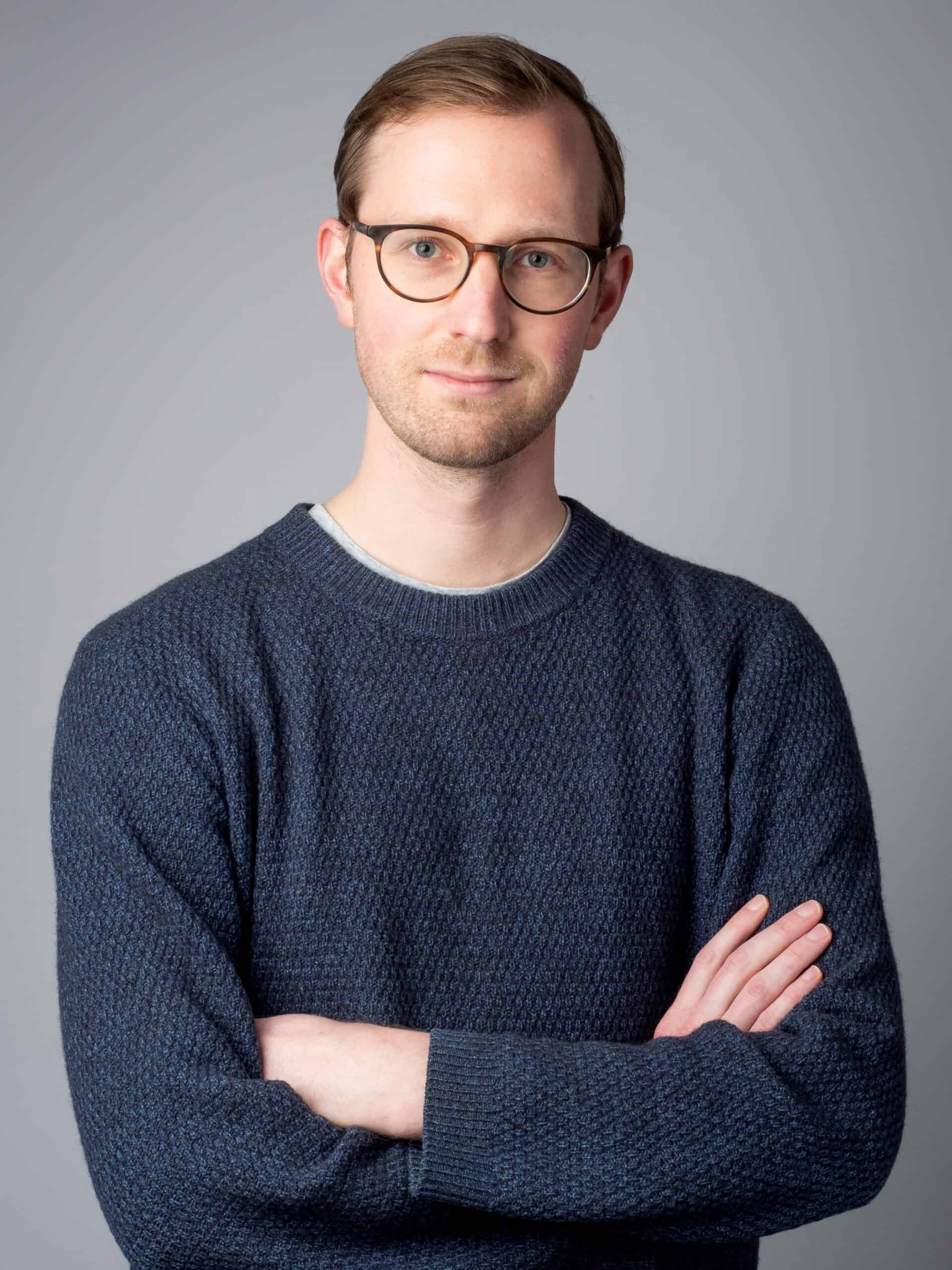WHU – Otto Beisheim School of Management is one of Germany’s most prestigious business schools and produces more unicorns than most European universities. This year, Verve Ventures has already invested in two startups founded by WHU alumni, namely marta and Erste Hausverwaltung (EHV). Time to find out what makes WHU an ideal training ground for future entrepreneurs and speak to Maximilian Eckel, who heads WHU’s Entrepreneurship Center.

Managing Director, WHU Entrepreneurship Center
Maximilian Eckel leads the WHU Entrepreneurship Center at the WHU Otto Beisheim School of Management. WHU is a private business school in Vallendar, Germany, with around 1900 students. It is named after the billionaire founder of retail giant Metro AG who donated to WHU’s endowment. WHU is the birthplace of 15 startups valued at more than EUR 1 billion, more than any other university in German-speaking Europe. Before joining WHU, Maximilian co-founded a startup and was Head of Startup Coaching at the renowned technical university RWTH Aachen (Germany). Max has a Master of Arts in Science, Technology and Society from Maastricht University.
Who graduated from WHU in 1998?
Let me think… it must have been Oliver Samwer?
Correct. After graduating, he quickly became a successful entrepreneur.
Together with his brothers Marc and Alexander and others, he founded the online auction site Alando in 1999. About 100 days after it went online, eBay bought it for 50 million Dollars. The brother’s next venture, a provider of ringtones for mobile phones, was sold for 273 million Dollars 5 years later. In 2006, they started Rocket Internet, which eventually churned out successful companies such as Zalando, Delivery Hero, and numerous others.
Was Oliver Samwer the spark that ignited the entrepreneurship culture at WHU?
To a large extent, yes. Oli wasn’t the first successful entrepreneur – WHU alumni Stefan Schubert founded the financial portal Onvista, which went public in 2000, already in 1998. But the most remarkable feat about Oliver Samwer’s success was the speed at which it happened. Traditionally, WHU alumni strive to land positions in investment banking or consulting after they graduate. Christoph Schweizer, the CEO of Boston Consulting Group, is a WHU alum. But Oliver Samwer, who sold his first startup very quickly and successfully showed our students the potential of renouncing a traditional career and becoming an entrepreneur.
Sometimes a spark can fizzle out. What happened later that helped to firmly establish this entrepreneurial culture at WHU?
What accelerated this trend is that later when Rocket Internet began to build other companies, they systematically recruited new talent from WHU. These were exciting opportunities, imagine that just with a Bachelor’s degree in hand you could get sent to Malaysia or another faraway country to build a local presence for a startup.
Why did they recruit a lot of WHU graduates?
Because then, and now, WHU attracts a special type of talent. If you think about it, our location in Vallendar, a small town somewhere between Frankfurt and Cologne, seems to be a geographical disadvantage. There are no bars here, and you cannot go to the local supermarket without meeting a dozen students from different school years. The only parties you can go to are house parties hosted by fellow students. But this disadvantage, combined with the small size of WHU, is what creates very strong networks among the student body and the kind of trust that doesn’t fade quickly after graduation.
Still, one company alone, though successful, could not have been responsible for what has become a very broad flow of founders today.
Rocket Internet was essential because it was a “school” that many alumni went through before founding successful ventures of their own. And many of these founders, after an exit or after selling some of their shares in secondary transactions, invested in the next wave of founders out of WHU. The trust and personal ties were there, because of their shared experience at this school, and this was very important at a time when angel investing was still not yet well established in Germany. It wasn’t rare to find alumni from several different graduation years on the cap table of a startup. And I think that this ready access to capital was a competitive advantage for prospective founders, which motivated even more graduates to try their luck.
“One of the most important things is to enable real and close interaction between the alumni and the student body beyond mere recruitment events.”
Once a flywheel takes up speed, it’s easy to keep it going… but what can other universities without their own Rocket learn or copy from this example?
One of the most important things is to enable real and close interaction between the alumni and the student body beyond mere recruitment events. Every WHU student has to do 3 internships before graduating. Investment banks can take up only a small percentage of students in their summer internships, so many opt for internships in startups built by WHU founders and get to know these people personally. If 5 years later, they start their venture and can write these people a WhatsApp message about it, as they might invest in it, this is worth a lot.

The deep-tech VC of choice for entrepreneurial investors
Since 2010, we have invested in 180 European deep tech companies based on topical experience. With a highly skilled team of investment professionals, we back outstanding entrepreneurs driving growth in key industries. Verve is the pioneer of deep tech in Europe.
You lead WHU’s entrepreneurship center. What does it contribute to keeping that machine well-oiled?
We have a different, unique starting position. Take RWTH Aachen, where I worked before as a startup coach. It’s a large public university with 30’000 students. At such a size, an entrepreneurship center’s main goals are to sensitize students about the possibilities of entrepreneurship and to provide basic early-stage coaching. At WHU, we do none of that. Our leitmotif is how to make the expertise of our alumni accessible to the next generation. We don’t even do workshops ourselves. If we’re convinced a topic needs to be transported, we check who among our alumni is best placed to deliver this message. We’re lucky enough that more than 90% of our graduates join our very active alumni network. We have a summer accelerator program, and again, its main value is to provide access to dozens of successful alumni founders. Copying such a setup is at least very difficult. However, I think it is very important for every university to identify their alumni who have become entrepreneurs or venture investors, and to leverage their knowledge very actively. There is a lot of untapped potential. A guest lecture on entrepreneurship once per year is not enough.
“Agreement between founders is key.”
You co-founded a startup yourself. What are your lessons from that experience?
Agreement between founders is key. You work very closely together, and this also necessitates establishing some borders. I wouldn’t recommend sharing your flat with a co-founder, for example, because that means that you can never switch off. Another learning point is that when you’re in the field of social entrepreneurship – and this is probably also applicable to any “green” tech startups – that everyone will tell you how wonderful it is what you do. The risk you have is that you will not hear the second, more important part of the feedback. Do you have the necessary unit economics? Is the market big enough? This will never work because of reasons A, B, and C. Especially when you think you’re doing something good, you need such critical voices, and sometimes they’re hard to come by.
Let’s come back to WHU. Will the university be able to defend its reputation as a talent foundry? Isn’t there a risk that success breeds complacency?
Success breeds success. Elite business schools like Insead, the University of St. Gallen, the European Business School, or WHU attract hungry people that want to leave a mark. Their motivation is intrinsic, and the community of students and alumni can shape their attitudes towards certain careers. I see that with plenty of our graduates who start their career in consulting or private equity and after a certain time when they have learned the ropes and accumulated some money, take the plunge and become entrepreneurs. It is an attractive option that they kept in their heads for a long time.
But it’s not 1998 anymore.
True, venture capital today flows less readily in consumer-focused online ventures and more into B2B Software-as-a-Service and deep tech startups. It has gotten much harder to come up with a convincing business model out of a business school, all on your own. Herein lies our challenge and opportunity to collaborate more with the strongest technical universities such as RWTH Aachen, TU Munich or ETH Zurich, for example. These schools develop world-class intellectual property, but scientists often lack the business acumen and sales skills our graduates possess.
This sounds great in theory. A startup founding team combining, say, the scientific excellence of an ETH Ph.D. and the hustle and connections of a WHU alum would probably be unbeatable at what they do. However, in practice, founders usually find their co-founders in the bubble they live in. I only know a few examples where co-founders from other places, let alone other countries, were recruited without personal ties to start with. What can be done?
We cannot solely rely on coincidences. Bringing founders with complementary skills together is very important. Just to give one example, there was this team of engineers pitching before investors, and of course, one investor asked what the main engineering challenges were going forward. The founder enumerated a very long list of problems and called many of them horribly complicated. Now, his answer was very honest, but it was also very unnerving for the investors. A co-founder with good sales skills would have framed the answer differently. Now as to your question about what can be done to encourage to get to more diverse founding teams, we as universities need to build more bridges between institutions. And we’re actively doing that. We were able to bring a handful of scientific teams from RWTH Aachen together with WHU alums in the past year. Such successful matchmaking should be replicated with other universities, and we’re in contact with the University of Bonn and Bochum, and TU Munich. I feel a spirit of optimism in this regard.
Written by
WITH US, YOU CANCO-INVEST IN DEEP TECH STARTUPS

Verve's investor network
With annual investments of EUR 60-70 mio, we belong to the top 10% most active startup investors in Europe. We therefore get you into competitive financing rounds alongside other world-class venture capital funds.
We empower you to build your individual portfolio.
More News
29.08.2022
Bringing Property Management into the 21st Century
Founded in 2021, EHV aims to modernize the low-tech property management market, offering a better experience to tenants and property owners.
25.08.2022
“Elderly care is too important a problem not to be solved”
Startup marta recently announced a EUR 6.6 million Seed round. The company uses technology to make live-in care a better experience for families and caregivers. In this interview, co-founder Jan Hoffmann explains how marta is able to do a much better job than traditional placement agencies.
24.08.2022
Live-in care startup marta secures €6.6m in Seed funding
Startup marta secures €6.6m in Seed funding to revolutionize the elderly care sector. marta is changing the way elderly care is offered.
Startups,Innovation andVenture Capital
Sign up to receive our regular newsletter and learn about investing in technologies that are changing the world.




